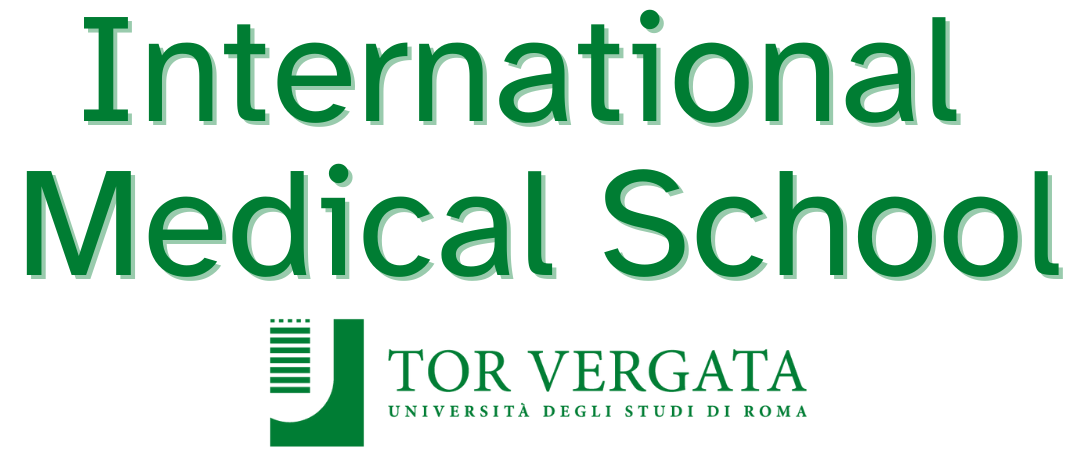
Survival tips
08/11/2021WELCOME TO THE UNIVERSITY OF ROME TOR VERGATA
MEDICINE & SURGERY – ENGLISH COURSE
SURVIVAL TIPS
WHAT TO EXPECT
So you’ve chosen to study medicine in Italy
- This is the start of a long, six-year journey for you, and it is thus imperative to get the right start. Your peers have prepared a list of resources and tips in order to help you get through these next 6 years.
- First of all, you’re studying medicine. It’s not an easy feat and you really need to stay on top of your regular studying, and develop good study habits if you haven’t already, or you’ll risk falling behind.
- You will start attending some clinical practice this year to get familiarized with the hospital, and then you will do more and more in your later years.
- It is important to use your clinical hours to your advantage. This is when you can get your hands-on experience and solidify the things you learn in class. Do not always wait for anyone to come and show you something or to teach you the things you’re already studying in class. Use this time to ask questions, ASK to see something, ASK to do something, don’t take “no” for an answer. Follow the residents (“specializzandi”), as they are also very valuable and very available to teach. Remember, all the doctors and residents were at one point in your position, and they should be helping you out.
EXAMS:
- Most of your exams will be oral exams, and very few written.
- If you are not used to taking oral exams, you will want to start practicing reading or studying out loud, being able to explain the topics that are taught, because this is how your exam will be.
- If you are not the only one taking the exam, prepare to have other people in the classroom as well as you take the exam and vice versa.
HOW TO STUDY:
Below are some study methods provided by your peers. These are just suggestions of course, and you will find what suits you best.
- Flash cards
- Either make them by hand, or
- Use Anki à https://ankiweb.net/about
- This is an app that is free to download on your computer or the android store on your phone.
- Either make them by hand, or
- Make cards as you attend lessons, or make cards from your notes or the books you study from
- This method uses spaced repetition. You will see cards after 10 mins, then 1 day, then 4 days as long as you keep getting the questions right. If you get it wrong, the spacing between cards is shortened again, for example from 4 days back to 1 day
- Check YouTube for tips on the best way to make cards for med school
- The anki website also has searchable pre-made decks for almost any topic you can think of (anatomy, physiology, foreign language etc.)
- “Repeating”
- This method involves reading the text or your notes, and then repeating a summary of what you’ve read out loud to yourself…over and over…
- For long-term learning this method is less effective than spaced repetition, but it is good practice to prepare yourself for an oral exam.
- You can pair up with a study partner and “quiz” each other in this way to help retain the knowledge
- This method involves reading the text or your notes, and then repeating a summary of what you’ve read out loud to yourself…over and over…
- White boards / plain paper & pen / iPad & Apple pencil
- Some people do really well with drawing and learning with pictures, especially when it comes to anatomy and physiology
- Test yourself by drawing an image and explaining it is another good method and helps with long-term retention
- Website: https://www.drawittoknowit.com/
- Highlighting & underlining
- Highlight and/or underline in the book as you go through
- Synthesize a summary with these important parts
- Print out the summary – underline / highlight that as you go through it and read/repeat out loud
- Don’t have the mindset that you can just “forget” an exam once you’ve passed it. Your future exams will all build on what you’ve learned, so try to periodically revise your past notes as this will really help you stay on track in the long-run.
- The Anki flashcard app is great for this purpose
WHERE TO STUDY:
Finding a quiet place to study in a new city isn’t always easy, so we have compiled a list of great places in the city and around the university for you to hit the books:
- Medicine faculty library
- Located on the 2nd floor of the faculty
- Lockers available
- No food or water allowed
- Law faculty library
- Recently constructed
- Lockers available
- Water allowed inside
- There is a bar on-site and a UniCredit bank
- The “aquarium”
- These are the glassed-in rooms on the bottom floor of the medicine faculty
- Seating can be hard to find as there aren’t many
- Looks out onto the front of the faculty where people hang out so could be distracting
- Biblioteca Nazionale Centrale di Roma (Rome National Library)
- You need to create a library card to access, which you must do on-site
- Lockers provided
- Beautiful, large library with numerous different rooms to choose from
- Located near the metro B stop “Castro Pretorio”
- Coffee shops:
- Not many coffee shops in Italy are a “sit and study all day” type atmosphere, but there are a few in Rome:
- Moka milk
- Located in Ponte Lungo, inside and outside seating but small-ish tables and few plugs for your laptop
- There is wifi thought it’s not the fastest
- Anticafe’
- This is a coworking space / bar
- Wifi available
- You pay for the time you use here but while you’re there you get access to “free” pastries and coffee.
- Most updated prices were 4 euros for the first hour, and 3 euros for each hour after that
- Located near the metro A stop “San Giovanni”
- Caffe’ Letterario
- Smartworking space
- On the weekends it is only open in the afternoon
- Ex Circus
- Open every day 8-22
- Located near Piazza Navona
STUDY RESOURCES:
- The textbooks recommended by the professors, listed in the syllabus or communicated to you on the first day of class
- Follow the topics from the syllabus, downloadable from the university website
- These books are also available in limited quantity to rent from the university library
- YouTube
- Good channels:
- Ninja Nerd
- Med Ed
- Good channels:
- Osmosis
- Sketchy Micro
- Khan Academy medicine
- Armando Hasudungan
- Medicosis
- Lecturio
- JJ medicine – great for pharmacology
- Professor’s slides
- Most, but not all of the professors will provide you with the slides from their course
- Create a joined Mega account (or OneDrive, Google Drive, IceDrive, etc.) and upload everything there for the class to access
- Ask upper years for any extra materials they might have as well
- Check the program’s Facebook page for past exam questions, or again ask upper years if they have a list
- Goljan
- He is a pathology professor who ran a course for USMLE prep, but all of these lectures got recorded and are now on Spotify – recommended!
- Link: https://open.spotify.com/show/1uD6090Kkg01b4zr2ouNiM
EXTRACURRICULAR:
- SISM of Tor Vergata
- This is the medical society at the university
- There is a 10 euro sign-up fee every year
- You get access to numerous trips and events they organize, including clerkships and projects in Africa (Wolisso project)
- Volunteering
- If you are planning to go abroad, i.e. to the U.S. after graduation, this section is important to build your CV
- You can take a course with the local Croce Rossa (Red Cross) allowing you to volunteer with them
- There are numerous “remote” (covid-friendly) volunteering opportunities, such as teaching English (or your native language) to refugees or underprivileged communities and children
BORSE DI STUDIO (SCHOLARSHIPS):
Throughout the year, numerous scholarship opportunities will be presented. Keep an eye out for the bando (announcement):
- Tutoring
- Library desk
- Social media representative
- Laziodisco
PLANNING AHEAD:
- US and USMLE
- If you want to take the USMLE eventually, we cannot stress enough how important it is to not fall behind, and to plan your studies for it as soon as possible
- Early med school topics like anatomy, physiology, biochemistry, laboratory medicine, and clinical microbiology are the basis of many exam questions
- Get yourself the USMLE step 1 First Aid book, make notes in that as you visit the topics in class – this will help you get this big exam done with as soon as possible, though you might have to study some topics ahead like neurology, pediatrics, gynecology, and psychiatry (5th year exams) if you want to do this exam before the 4th year
- Boards & Beyond
- Resource for USMLE – somewhat expensive subscription but well worth it
- U-WORLD
- Pretty much a mandate if you’re taking the USMLE – this is the most expansive resource of USMLE-type practice questions along with explanations
- Other European countries
- There is a great Facebook resource called Doctors in Fuga (doctors on the run). Check the page’s file section to see all the requisites of various European countries (i.e. language test requirements etc.)
Last Updated on 16/02/2023


